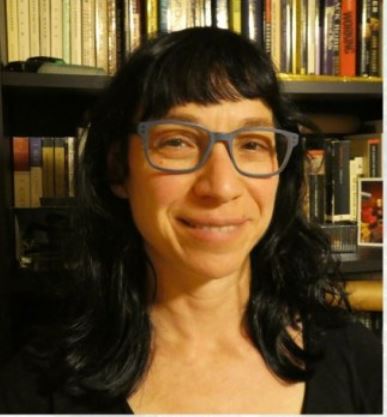
What did you study at Yale, and what is your current profession/job?
I am currently a Senior Research Analyst at CREDO at Stanford University. In this capacity, I lead CREDO’s qualitative research program across numerous projects examining public education and education reform in the U.S. Prior to joining CREDO in 2014, I spent six years in New Orleans, leading a nonprofit organization devoted to rebuilding youth-serving systems including education, afterschool, health/behavioral health, and juvenile justice in the post-Katrina environment. I received an M.S. in Developmental Psychology in 2001 and a Ph.D. in American Studies in 2008 from Yale. My dissertation project examined narratives of social mobility in a summer educational program for low-SES students.
What do you like most about your current role? What do you find most challenging and/ or rewarding?
Working as an applied researcher inside an elite university is a privilege. CREDO’s studies aim to understand educational interventions that impact hundreds of thousands of students. My work informs state and national policies. We make the case for quality public education to leaders who might could – maybe, someday – make educational equity a reality. I find that both rewarding and humbling.
As for my daily work, I love that I contribute to multiple projects simultaneously. I love that my colleagues all share a sense of commitment to our organization’s mission and to mixed methods collaboration. I love that my research lets me explore deeply in particular issues and geographies, but also contributes to broader national conversations. Finally, I love that we bring an explicit commitment to integrity to our work.
How did your time at Yale shape your career trajectory?
I was never committed to an academic career, even as I entered a doctoral program at Yale. I have always believed firmly in the critical importance of applied research, and in the need for policymakers, funders, frontline educators, and other stakeholders to have access to cutting edge, methodologically rigorous research about how best to support under-served populations. Yale provided me with top-notch training in theory and research methods, grounded in the relevant historical and sociological contexts within which I wanted to work. Completing a dissertation in an interdisciplinary program (American Studies) allowed me to benefit from advising by faculty across multiple fields of study, which in turn helped me hone the intellectual agility I use every day in navigating a slate of diverse research/evaluation and strategy-development projects.
What are the main skills that you acquired as a PhD student which help make you successful in your current career?
My methodological training has been invaluable. I can apply those skills in nearly any setting.
Did you acquire any professional experience related to your line of work while in graduate school?
I paid bills while in grad school by consulting for market research firms. This was my first exposure to corporate settings. I found that my training at Yale prepared me extremely well to do the actual work of market research and product development. But, perhaps more importantly, the commercial setting enriched my understanding of the very systems I problematize in my research.
What advice would you offer PhDs who are interested in your line of work?
Don’t be afraid to search broadly. Many sectors have need of scholars, researchers, and advocates in diverse content areas. Look beyond the obvious to consider opportunities in government, philanthropy, journalism, and beyond. Academia’s mission is to further knowledge and the understanding of the human condition. That mission applies – and can be pushed even further – to any number of fields that benefit from having top notch thinkers contributing to applied research and public discourse.
